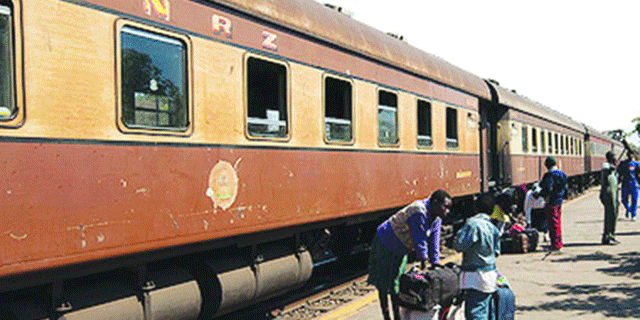
FOURTEEN locomotives, which the National Railways of Zimbabwe (NRZ) paid a deposit for in China in 2011, are yet to be manufactured with the contracted firm demanding full payment or credit guarantees first before completing the job. NQOBANI NDLOVU STAFF REPORTER
The NRZ deposited $2,9 million towards the purchase of the 14 locomotives at a cost of $29 million as part of its transformation programme.
In 2012, the then Transport and Infrastructure minister Nicholas Goche said the government had paid up the difference to secure delivery of the locomotives.
However, NRZ public relations manager Fanuel Masikati told Southern Eye yesterday the parastatal was yet to take delivery of the locomotives because of non-payment.
“We have not been able to raise the difference. The company is insisting on full payment or credit guarantees. We are hopeful that we will secure the funding and at the same time discussions are ongoing with the parent ministry to secure credit guarantees,” Masikati said at the NRZ stand at the Zimbabwe International Trade Fair.
The purchase of the locomotives was expected to revitalise and re-equip the parastatal by boosting its fleet and ability to enhance economic recovery capacity. NRZ requires about $400 million in the short-to-medium term to revitalise its operations and about $10 billion in the next 10 years to reach full operating capacity.
“There is need for NRZ to be capacitated. We need new locomotives, new wagons and new coaches. We have the capacity to provide rail transport services to our customers and drive the industry that will in turn drive the economy,” Masikati added.
A host of challenges like capital constraints and limited revenue inflows drove NRZ to its knees resulting in its failure to refurbish, maintain or replace ageing infrastructure.
- Chamisa under fire over US$120K donation
- Mavhunga puts DeMbare into Chibuku quarterfinals
- Pension funds bet on Cabora Bassa oilfields
- Councils defy govt fire tender directive
Keep Reading
At one point, the World Bank suggested that the rail parastatal shut down nearly two-thirds of its railway network to allow for rehabilitation because of the high potential for disaster they posed.
The railway network covers over 3 000km.
Experts recommend privatisation as the only way the NRZ can be revitalised as the government is facing multiple challenges, all related to liquidity constraints.










